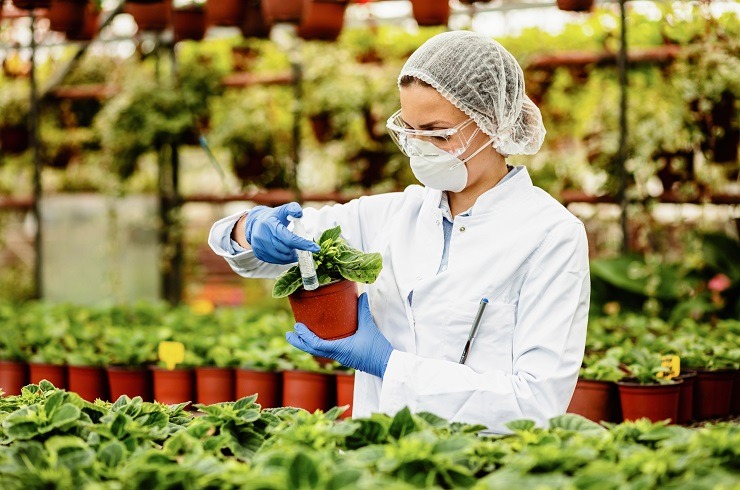Comprehensive Curriculum for BSc in Agriculture 🌾🎓
The Bachelor of Science in Agriculture (BSc Agriculture) is a four-year undergraduate program that integrates scientific principles, practical training, and research to equip students for careers in agriculture, agribusiness, and allied sectors.
Program Overview
The BSc Agriculture program focuses on modern farming practices, agronomy, soil science, crop production, agricultural economics, and sustainable agriculture techniques. It blends classroom learning with hands-on training in agricultural practices to meet global food security and sustainability challenges.
Eligibility Criteria
- Educational Qualification:
- Completion of 10+2 (Science stream) with Physics, Chemistry, and Biology/Mathematics.
- A minimum aggregate of 50%-60% (relaxations for reserved categories as per norms).
- Age Limit:
- Generally, 17 to 23 years (varies by university).
- Entrance Exams (if applicable):
- National exams like ICAR AIEEA, or state-level entrance exams (e.g., KEAM, MHT CET).
- Some universities may conduct their own entrance tests.
- English Proficiency (for international applicants):
- Valid scores in TOEFL, IELTS, or equivalent tests.
Admission Procedure
- Application Process 📝:
- Apply online/offline through university portals or entrance exam websites.
- Submit required documents: academic transcripts, identity proof, and photographs.
- Entrance Exam :
- Appear for relevant national/state-level tests or university-specific exams.
- Shortlisting:
- Based on entrance scores and academic qualifications.
- Counseling/Interview:
- Participate in counseling sessions or personal interviews (if applicable).
- Final Selection:
- Based on overall merit and interview performance.
Curriculum Structure
Year 1: Foundation Courses
- Principles of Agronomy
- Fundamentals of Soil Science
- Basics of Horticulture
- Introduction to Agricultural Engineering
- Rural Sociology and Agricultural Extension
- Environmental Science
Year 2: Core Agricultural Sciences
- Crop Production and Management
- Irrigation and Water Management
- Fundamentals of Plant Pathology
- Livestock Production and Management
- Principles of Genetics and Plant Breeding
- Statistical Methods and Agricultural Research
Year 3: Advanced Topics and Research
- Agricultural Economics and Marketing
- Pest and Weed Management
- Seed Technology
- Post-Harvest Technology and Food Processing
- Biotechnology in Agriculture
- Entrepreneurship Development
Year 4: Practical Training and Specializations
- Internship/Field Training:
- Hands-on experience at farms, research stations, or agribusinesses.
- Research Project:
- Conduct supervised research on a topic of choice.
- Elective Courses (Choose one or more):
- Organic Farming
- Precision Agriculture
- Agroforestry
- Sustainable Agriculture
Assessment & Grading
- Continuous Evaluation: Assignments, practical reports, and class participation.
- Semester-End Exams: Test theoretical understanding.
- Practical Assessments: Fieldwork, internships, and research projects.
Career Options After BSc Agriculture 🌾🌟
In India
- Government Sector Jobs:
- Agricultural Officer through IBPS-AFO.
- Positions in state agriculture departments, NABARD, or FCI.
- Research and Academics:
- Work in ICAR institutions or pursue a career as an agricultural scientist.
- Private Sector Opportunities:
- Agribusiness firms, agrochemical companies, or seed production companies.
- Entrepreneurship:
- Start your own agribusiness, organic farm, or agro-consulting service.
Abroad Opportunities 🌍
- Higher Education:
- Pursue MSc in Agriculture or related fields like Agribusiness, Biotechnology, or Sustainable Farming.
- International Agribusiness:
- Work with global firms specializing in food processing, exports, or agri-tech.
- Research and Development:
- Join international research institutions like CGIAR or FAO.
Competitive Exams Post-BSc Agriculture 🏆
In India
- ICAR AIEEA PG: For postgraduate studies in agricultural sciences.
- UPSC Exams:
- Indian Forest Service (IFS).
- Civil Services Exam for roles like IAS.
- State Public Service Exams: For roles in state agriculture departments.
- Banking Sector Exams:
- IBPS AFO (Agriculture Field Officer).
- JRF/SRF: For research fellowships in agricultural science.
Abroad
- GRE/GMAT: For higher education or MBA in Agribusiness abroad.
- TOEFL/IELTS: For studying or working in English-speaking countries.
- Global Agriculture Certifications: In precision agriculture or agronomy.
Program Fee Structure
- India: ₹40,000 – ₹2,00,000 per year.
- Abroad: $8,000 – $25,000 per year.
(Scholarships and financial aid options are often available for meritorious students.)
Conclusion
The BSc Agriculture program equips students with the knowledge and skills to address global agricultural challenges, ensuring food security and sustainability. 🌟 Graduates have access to rewarding careers in government, private sector, and international organizations, with ample opportunities for higher education and research.
Would you like more details on specialized electives or specific career pathways? 😊
Course Features
- Lecture 0
- Quiz 0
- Duration 156 weeks
- Skill level All levels
- Language English
- Students 0
- Assessments Yes







